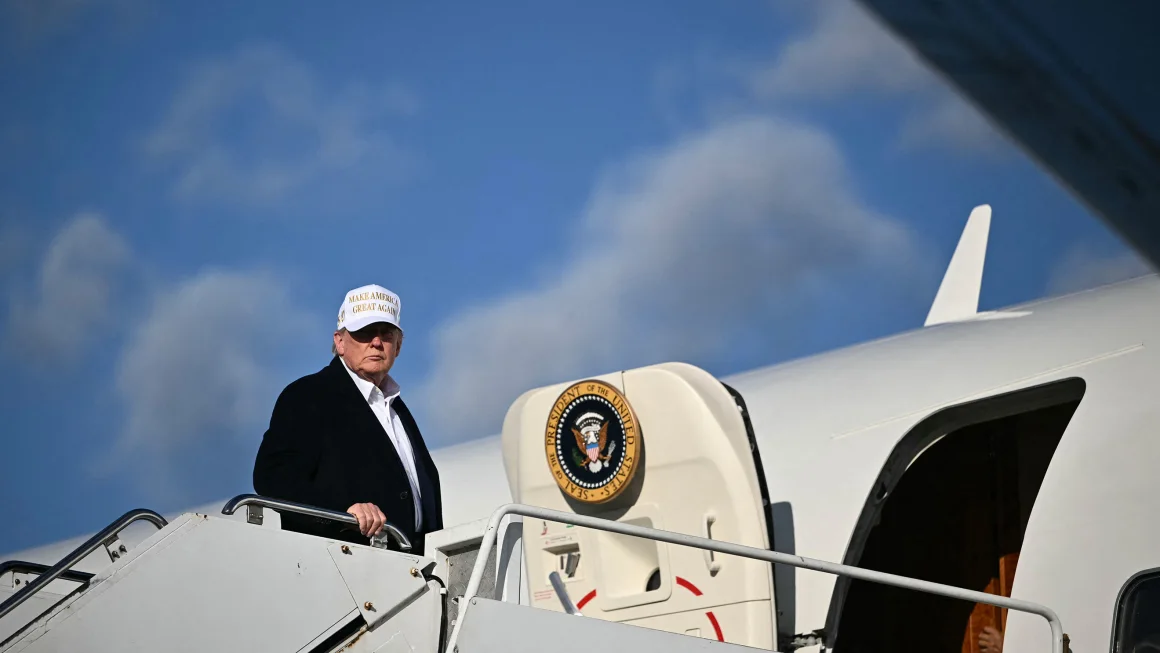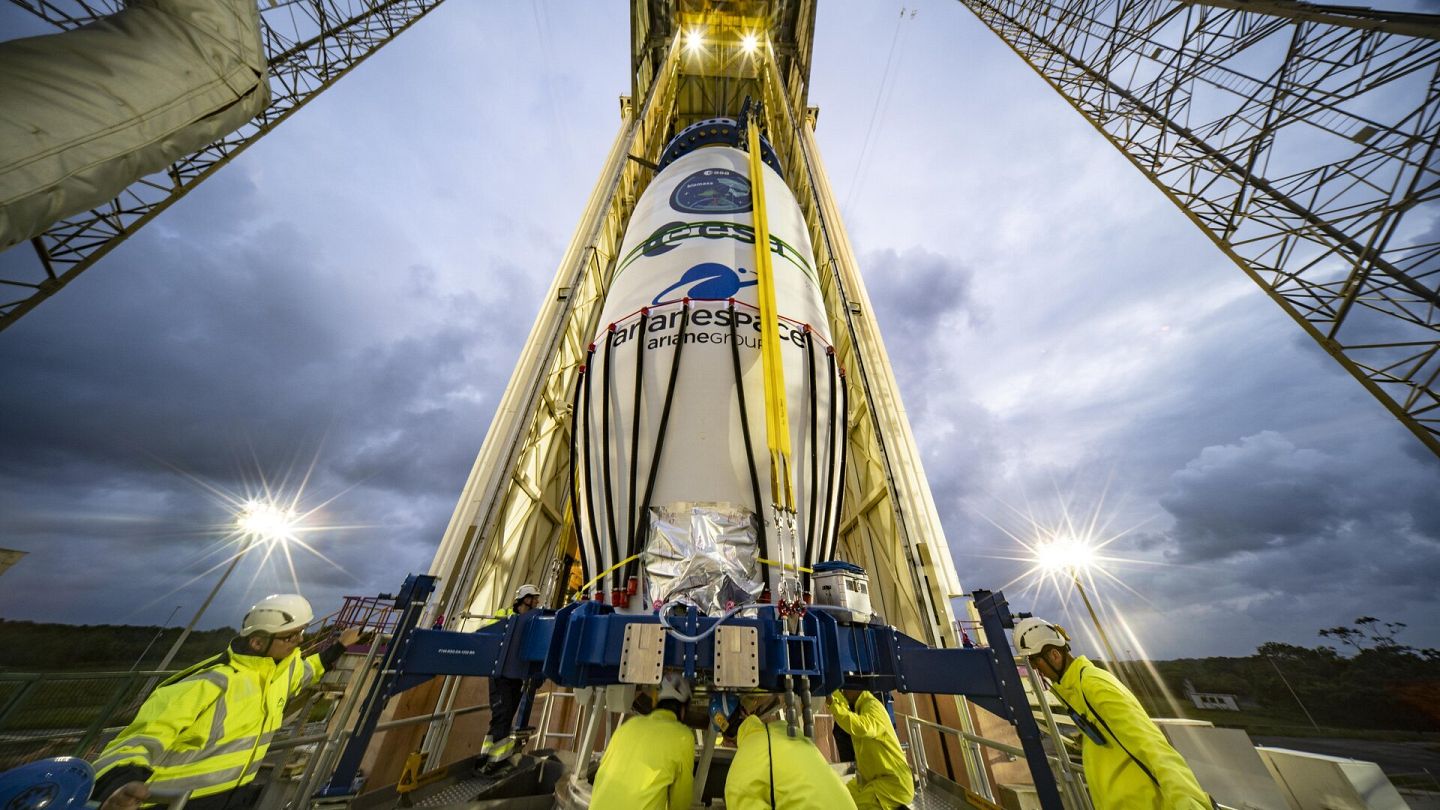If Trump really is running the world, where will he take it?

Donald Trump thinks he’s running the world. His ambition is boundless. But it also reeks of dangerous hubris and raises a grave question: Where will the planet end up under the leadership of this chaotic and vengeful president? Trump revealed his plan for global dominance in a new interview with “The Atlantic.” He said he had rid himself of the “crooked guys” and investigations that limited his first term. “The second time, I run the country and the world,” he added. The president is attempting a massive, simultaneous transformation of life in the United States and the American-led global political and economic systems that have cemented Washington’s primacy since World War II. He’s indisputably the most ubiquitous world figure, 100 tumultuous days since reclaiming the Oval Office. No one knows what he’ll do next – not the US’ allies nor its enemies. And in this upside-down era of MAGA foreign policy, it’s sometimes hard to know which is which. From Moscow to New Delhi and Gaza to Rome, Trump has a finger in every geopolitical pie. Many foreigners might be revolted by the president. But they can’t ignore him. That must be especially sweet for a commander-in-chief whose entire life has been a quest for notoriety. There’s some truth to Trump’s boast The reality of America’s global role means that the person who has the top job has immense authority, said Majda Ruge, a senior policy fellow at the United States program at the European Council on Foreign Relations. “Take Ukraine, which is on the borders of the European Union – it’s practically a European issue, but the fact is that without American intelligence, military support and American nuclear deterrence, Europeans are not able to continue supporting Ukraine to the extent that is needed for Ukraine to actually advance on the battlefield,” said Ruge, who was speaking from Brussels. “Going back to the quote, ‘I run the world,’ there is truth to that because of America’s huge impact on world politics and foreign policy,” Ruge said. “But the question is, is he actually running it in the direction that is constructive, rather than disruptive and a little bit all over the place? And secondly, is he even running it in a strategic manner to ultimately arrive at the place he wants to go?” Trump’s supporters argue that the traditional American approaches to foreign policy brought nothing but humiliation. They remember two lost wars in Afghanistan and Iraq and think Europe built bloated welfare states under America’s generous military umbrella. The president’s bombast puts a lot of people off. But he often asks pertinent questions. For instance – did two decades of US economic engagement with China buy nothing more than a 21st-century superpower rival while destroying American manufacturing? And 80 years after the defeat of Nazism and three and a half decades after the fall of the Soviet Union, shouldn’t Europeans now be taking care of their own defense? The problem is that Trump’s approach to addressing these questions risks undermining the security and the stability of the world he professes to lead. The risks of Trump’s volatile temperament Signs for Trump’s foreign policy priorities don’t currently look promising, especially after he launched trade wars that have rocked global markets and that have no easy way out. But perhaps his unorthodox approach can find a way to end the Ukraine war that a more traditional US president might miss. He’s surely due something for his frequent genuflecting to Russian President Vladimir Putin. And after trashing the last Iran nuclear deal in his first term, he’s seeking another one to forestall the horrible prospect of US military strikes. But Trump’s ultra-personalized and volatile approach to the world seems as likely to backfire. The president made his name as a builder. But he’s better at tearing things down. And barging into the center of global events and tunneling into the psyches of hundreds of millions of people with social media eruptions is hardly statesmanlike. Nor is making up huge tariff rates off the top of his head. Far from enhancing US power, Trump risks buckling it. His bullying is forcing foreign nations to hurriedly reevaluate their relationship with the United States. They face the same choice as university presidents, CEOs and media bosses in the US, only with greater stakes: Do they resist America’s new king or flatter him? British Prime Minister Keir Starmer came to Washington with an offer of a state visit with King Charles to try to play on Trump’s love for British royals. But Ukrainian President Volodymyr Zelensky tried standing up to Trump – and got kicked out of the White House after a televised dressing down in the Oval Office. And Canada, one of America’s closest friends, just held an entire election dominated by the need to break with Washington over Trump’s tariffs and his demands it become the 51st state. “The president and those around him feel they have greater freedom of action today,” said Ian Lesser, distinguished fellow and adviser to the president of the German Marshall Fund of the United States. “That includes not having to take into account the views of traditional allies … It can produce successes. But it also brings with it systemic risks.” One of those risks is the fracturing of alliances that have bolstered US power and goodwill for decades because Trump views traditional American friends as freeloaders. He’s made no secret that he’d rather sit down with tyrants such as Putin and Chinese President Xi Jinping – who he regards as strongmen in his own image – than leaders of allied nations that have shed blood with the United States to protect freedom and democracy. Trump’s ‘social Darwinism’ While Trump’s foreign policy actions often seem sudden and ill-thought-out, there’s a clearer ideological basis to his second-term ambitions. It’s just a not very palatable one for nations that have long relied on the United States. In a new article in the journal Internationale Politik Quarterly, two German foreign policy experts argue that Trump’s behavior is not that of an erratic or “short-tempered hothead” but rather exhibits a coherent worldview. “Trump knows neither friends nor enemies, he knows only strength or weakness,” wrote former German Foreign Minister Sigmar Gabriel and Thomas Kleine-Brockhoff, a former adviser to the German presidency who now heads the German Council on Foreign Relations. Trump, they argue, “thrives in a world of social Darwinism.” If this is the case, one of the pillars of US power has been lost. The country that was a bastion of stability and led the West to face down Nazism and communism is now the most unpredictable force in global politics. Trump is hardly the grand master of geopolitical chess he imagines himself to be. His tariff clash with China underestimated Beijing’s pride and unwillingness to fold. (China’s leaders want to run the world, too.) And, paradoxically, Trump’s aggressive attempts to use US power could result in his frittering away of important areas of US leverage. One possible outcome of the US trade war with China is a decoupling of the two deeply entwined economies. That could be a painful process for consumers in both nations. But it could also remove one of the factors that might deter Beijing from invading Taiwan: the possibility that a US trade cutoff during a time of war could destroy the Chinese economy. A similar loss of power could be in store for the US in Europe. If US allies follow through on vows to rearm amid fears about future US support, their independence might also weaken the Atlantic alliance that has multiplied American power for generations. Trump’s approach is also shattering the trust allies placed in Washington, draining US non-military power and influence by the day. Not only is the president apparently willing to recognize Putin’s illegal land grabs in Ukraine, he’s mulling one himself in Greenland. And he’s reversed President John Kennedy’s maxim that the US does not lead by the example of its power but the power of its example. His disdain for human rights and the rule of law; his elevation of despots over democrats; and his eradication of foreign aid that kept millions of Africans alive may irrevocably tarnish America’s reputation. Many US friends are now wondering whether they even share the same values as Americans who twice elected a president whose beliefs they reject. Some US allies in Asia are starting to reexamine their assumptions about US support in a region increasingly dominated by China. In Europe, Trump’s return to office has supercharged fears that the US has other strategic priorities and its allies must learn to fend for themselves. “I think that Trump’s election victory has, in a sense, given history a shove, and that a concern that had been in some sense theoretical or a long-term anxiety has suddenly turned into a near-term priority to address,” said Lesser, who was speaking from Ankara. Trump may think he is running the world now, but he is almost certainly making it more difficult for future presidents to do so. Credit: CNN.com

















